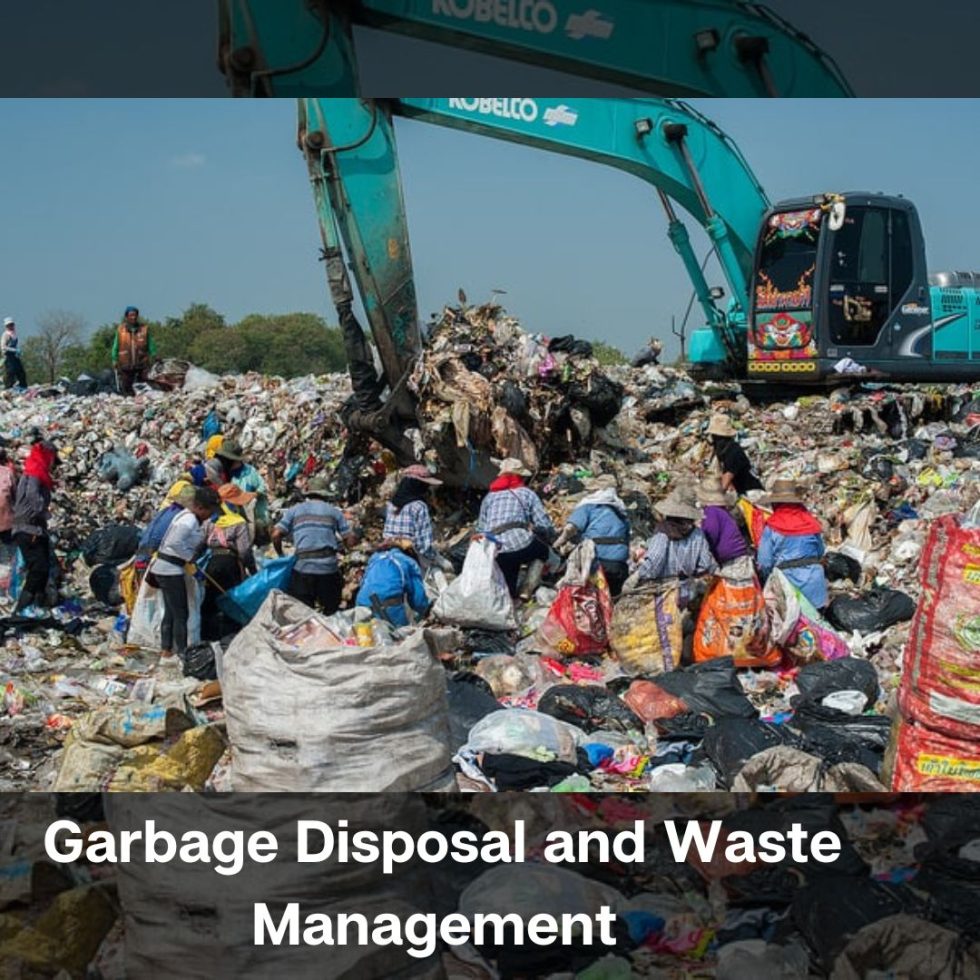
According to the annual report of solid waste management, India produces 1.70 lakh tons of waste per day. It becomes crucial to treat all the waste to reduce the hazardous effect of waste on the environment.
Waste management is the use of different techniques for the settlement of waste. The process starts with collecting the garbage where it is generated to finally dispose of the waste in the best possible way.
Waste is the things that are unusable and unwanted. Developed countries have better management and resources to manage their waste and underdeveloped countries generate less waste but managing waste on a daily basis has become a challenge for developing countries like India.
Waste can be categorized on the basis of its nature like industrial waste, household waste, organic waste, municipal waste, radioactive waste, biomedical and organic waste. Plastic bottles are the largest contributor to waste in India and throughout the world as well.
Steps of waste management
Reduce – The waste generation must be reduced in the first place. Government can start an awareness campaign to make people aware of how they can reduce waste.
Small steps can have a big effect. Here are some examples of reducing waste :
- Carry your own water bottle instead of buying packed water.
- Buy packed things in large quantities and preserve them in containers instead of buying many small packets of that thing.
- Bring your own carry bag when you go to buy veggies and fruits and even groceries.
Reuse – Reuse means using things again which can be abandoned. According to the potential of waste,it can be reused. Indian middle-class families are good in reusing unwanted and usable things in different ways because they know the value of money.
- The clothes which are not fit anymore to the elder one can be offered to younger billing or cousin or to charity
- Containers of food in which food is delivered can be used further to store the food and as a lunchbox.
- Old clothes can be used for dusting and cleaning.
- To reduce paper waste and to preserve trees, books must be reused in schools and colleges. Even It would reduce the burden on parents of students buying expensive books every year.
Recycle – Waste must be collected in different containers for each of the categories of waste. If recycle process is done properly all around India, it has the potential to create three times of jobs as if now and 14 lakh million dollars can be made each year.
Household waste can be categorized as biodegradable waste like vegetable peels and rotten rice, solid waste which can be recycled like shampoo bottles and steel utensils, and hazardous waste like kid’s diapers. It makes the process of recycling easier.
- Biodegradable waste can be used to feed cattle and to make organic fertilizer.
- Hazardous waste is dumped in landfills and then covered that dump area with soil to minimize the effect of waste.
- Approx 1 lakh kilometers of road is made of plastic in India. It really helps in reducing the plastic waste from the dumping yard. A solution is prepared in which plastic is mixed with other materials to make the road.
Recover – If the waste is not reused and recycled, it comes to this step. In this step, waste is burnt to convert it into energy. It can’t be done at home. There are very few plants that are setup to do it. Waste can work in making fuel to make electricity. The plants of this must be increased in terms of number. It can be a big problem solver for India.
Landfills – The waste which can’t be used in any way, dumped in a specific area and covered with a layer of soil. Waste is covered to minimize the poor effect of waste which may cause air pollution, water pollution and many diseases. It is not a preferred method to treat the waste.
Challenges that India is facing in waste management
See, India is the worst performer in waste management with 180th rank which is the lowest. We tried to find out the reason for such a bad performance in India. Here are the reasons :
- There is a lack of support from localities. People don’t keep the waste separate. So it becomes hard for waste collectors to differentiate the waste. This is the reason, most of the waste remains untreated and goes to dumping yards
- Municipalities lack the resources to collect waste systematically. There is a lack of recycling units and recovery units in India.
- The government has banned the use of single-use plastic. But to bring a rule is not enough as it could not be implemented on the ground.
- There is a lack of accessibility of facilities provided to villages. In many villages, there is nothing to be done for waste treatment. Villagers dump their garbage in open areas by themselves. It can cause various diseases in such areas.
- There is a lack of well-planned waste management in India
Steps were taken by Government for waste management
Some NGOs are working towards removing plastic and other waste nearby water bodies, tourist places, and roadsides. Indians are so free to throw garbage anywhere and they don’t even hesitate spitting and peeing openly in public places. These things create a very bad image in the mind of tourists when they see a leap of garbage, open drains, and unhygienic food everywhere.
The Indian Government launched a scheme ‘Swachh Bharat Abhiyan’ on 2nd October 2014 to honor Mahatma Gandhi by taking the first step towards fulfilling his vision to make India clean.
The main purpose of this mission is
- To make behavioral changes in people so that they can give preference to hygiene
- To make streets and roads garbage-free
- To provide better sanitation
- To promote the construction of toilets at every house
According to a report of UNICEF, 2018, Swachh Bharat Abhiyan helped in gaining access of toilets for 100 million rural households across 6,30,000 cities. Households in open defecation-free villages saved up to INR 50,000 every year per village.
Why India is in need of a good waste management system
- It will reduce the no. of mosquitoes and flies which will eventually affect in decreasing the number of diseases spread by various flies, mosquitoes and other disease-causing insects.
- 70% of Indian water is contaminated with waste. It is bad for the health of plants, animals and human beings who consume polluted water. The quality of water can be better with good waste management which will eventually help marine life, wildlife and humans.
- It will create a good number of jobs which will help in reducing unemployment and in improving the overall GDP of India.
- It will help in reducing the need of raw materials in the production of goods as people will prefer to use second-hand products instead of buying new ones. It will save resources and will affect import quantity as well.
- It will provide a better living area to people as under the waste management system, drainage is covered and roads are clean.
Conclusion
People must not rely on the system completely and they should take initiative from their end in managing the waste and must do the possible things they can do. See, No government is perfect and no system is perfect. Everyone must cooperate in schemes, government launches to preserve the environment. Government should make customized programs as per the needs of the region and should focus on the implementation of programs also.
No doubt, it is hard to adopt a new habit for people but it is the need of time and we should come together and the practices to save our nature which is being ruined by poor management of waste.









